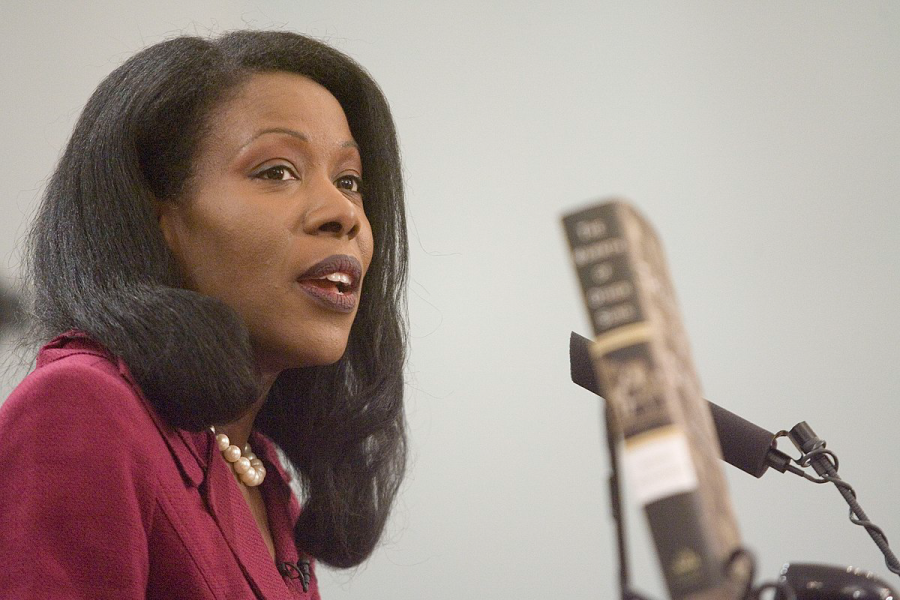Common Book disturbs, inspires
Isabel Wilkerson, author of the Common Book, will speak with readers during a virtual meet and greet at Brookhaven on March 1.
February 15, 2023
The entirety of American history cannot fit into the typical textbook. There are many more perspectives about the past than are typically taught in school.
“Caste: The Origins of Our Discontents” by Isabel Wilkerson is a non fiction book designed to examine all sides of history.
This book “explores, through layered analysis and stories of real people, the structure of an unspoken system of human ranking and reveals how our lives are still restricted by what divided us centuries ago,” according to the author’s website.
The Pulitzer-winning book was chosen as this year’s Common Book for Dallas College.
“Common Book is a program where Dallas College chooses a particular book and runs events throughout either a year or two years,” Eastfield librarian Mary Myers said. “Everyone is encouraged to read this particular title and there will be events. The instructors are encouraged to include information from the book or something about the book in their lesson plans if possible.”
The Common Book committee gives students and faculty access to a book that stretches across multiple academic disciplines.
“When students are studying one thing in one class and then they get to use it in another class, I think that does two things,” English faculty Timothy Cedor said. “Number one, they see that there’s value in what they’re learning because it really does apply to other aspects of their life. And number two, it reinforces that learning. Instead of hearing it once, they’ve heard it twice. … So now they deeply know it instead of only kind of knowing it.”
“Caste” was not an easy selection to make, Cedor said.
“It is a very emotionally intense book. And I didn’t know if faculty were ready to teach it or if the students were ready to read it,” he said. “It was not my first choice. It is a fantastic book. But it did have a lot of problems that I thought we needed to at least try to address before we picked it.”
The book touches on many topics, such as racism, dehumanization and torture. The intensity forced Cedor to take breaks while reading to recover.
However, the extremity of the topics the book covers did not dissuade everyone.
English major Grace Ortega was intrigued by the book for those very reasons.
“I heard about it from my English professor, and I was immediately interested,” Ortega said. “I think this kind of stuff, these stories and topics, are so important to know about. More people should push themselves to learn about the things that might make them uncomfortable.”
The selection process for the Common Book happens every two years. Anyone can suggest a book, including students.
The committee then sifts through the books and assigns each member a few to read.
Despite not being the first pick for some committee members, it was ultimately decided that the greater meaning made the book the best choice.
While it may be hard to read for some, its purpose is important, Cedor said.
“It allows the students to talk about what’s really going on in their daily lives. The very first semester we started using this book, it was right around the time George Floyd died. And that really allowed students to talk about their experiences,” Cedor said. “It also teaches students a history that they didn’t learn in school.”
Relating “Caste” to current issues helped some understand the book on a deeper level.
“I haven’t finished the book yet, but I keep having eye-opening moments where I can totally see how this all still affects our current political and social climate,” Ortega said. “I think sometimes people hear about things like racism and Jim Crow and push it aside like it doesn’t matter anymore, but that’s not true. These issues are still real, even if they look a little different now.”





